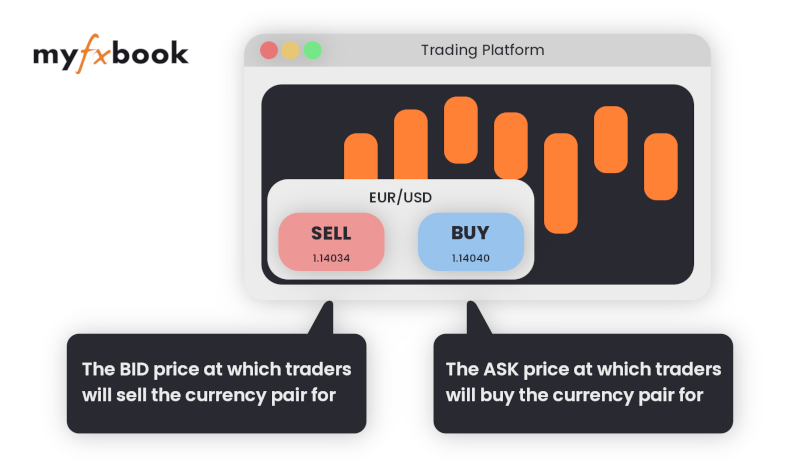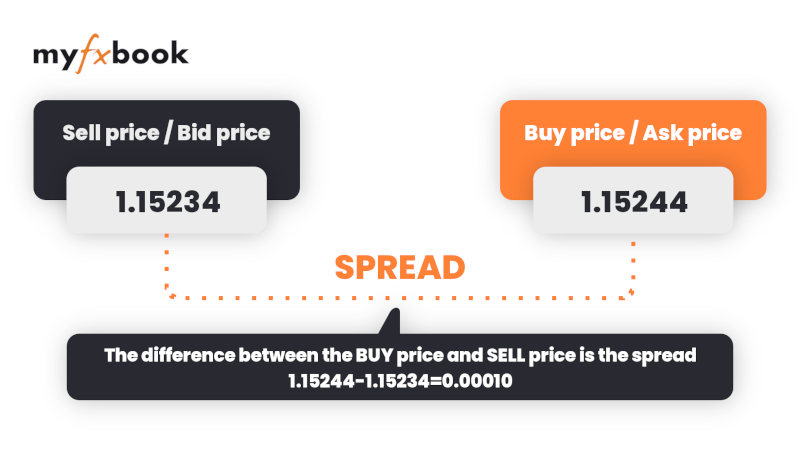- Inicio
- Education Center
- Bid, Ask Price and Spread
Cambiar contraseña
Bid, Ask Price and Spread
Bid and Ask Price
The bid price is the highest amount a buyer is prepared to pay for a currency, while the ask price is the lowest amount a seller is ready to sell. The gap between the bid price and the ask price is a representation of the cost of the transaction and is known as the spread.
In the forex market, the bid and ask prices are constantly fluctuating due to the constant buying and selling of currencies. The bid and ask prices can be affected by various factors such as economic and political events, interest rates, and inflation. It is important for traders to keep a close eye on these fluctuations and make informed decisions on when to buy or sell a currency.

Bid Price
The bid price is the maximum amount a buyer is willing to pay for a particular currency. It refers to the lowest price at which a trader can sell a currency, it is also referred to as the 'bid'.
For example, if a trader is selling US dollars, the bid price is the price at which a buyer is willing to buy US dollars.
Ask Price
The ask price is the lowest price a seller is prepared to accept for a currency, it is also referred to as the 'offer price'.
For example, if a trader is buying US dollars, the ask price is the price at which a seller is willing to sell US dollars.
Spread
The disparity between the ask and bid prices is referred to as Spread. It is the cost of trading in the forex market and it is usually measured in pips. The spread is essential for traders to consider when making trading decisions, as it represents the cost of buying or selling a currency.
It is important to note that the spread can vary between different currency pairs and different brokers. Some currency pairs, such as the major pairs, tend to have lower spreads, while others, such as the minor pairs or exotic pairs, tend to have higher spreads. In addition, some brokers may offer spreads that are fixed, while others may offer variable spreads that fluctuate based on market conditions.
Traders should always keep an eye on the spread when making trading decisions, as it represents the cost of buying or selling a currency. A lower spread can mean a lower cost of trading, which can increase potential profits. However, traders need to be aware of the spread and consider it when making trading decisions and when choosing a broker.











